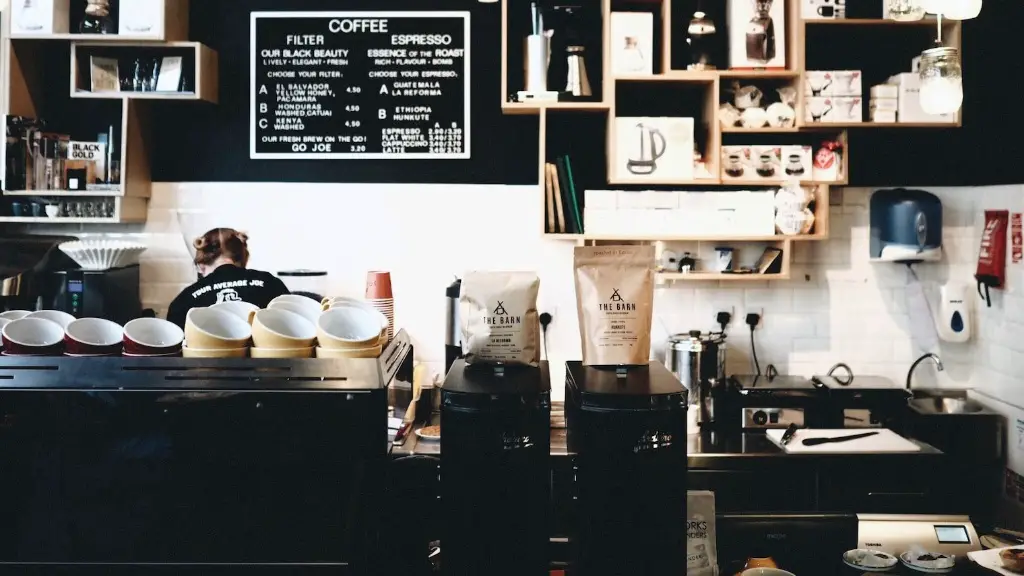How soon after breakfast should I drink coffee
Many people who enjoy coffee have probably wondered what the best time of day is to drink an espresso. When it comes to drinking coffee, everyone has their own preferences and opinions, but there is a little bit of evidence to suggest that it is best not to drink coffee too soon after breakfast. While the latest research is yet to be definitive, there is some evidence that drinking coffee shortly after a full meal may ultimately be less beneficial for one’s health.
A good place to start is understanding the effects of caffeine on the body. Caffeine is a stimulant and boost metabolism and energy levels along with several other functions in the body. It has been found to reduce the feeling of hunger and can also help to reduce fatigue. However, when taken too soon after a meal, and especially after a large meal, caffeine can actually reduce the efficiency of digestion while also possibly making the food harder to digest.
Another interesting point to consider is the effect of caffeine on blood sugar levels. Breakfast is a meal designed to provide you with the energy you need to get through the morning, and poor management of your blood sugar levels can cause both physical and mental exhaustion. Consuming coffee too soon after a meal can spike your blood sugar levels and cause a variety of problems such as headaches, dizziness, and even fatigue.
It is important to note that more research is necessary to fully understand the effects of caffeine on digestion and metabolism. But, even without definitive evidence, it is likely best to wait at least an hour after eating breakfast before indulging in your morning cup of espresso. That being said, if you are going to consume coffee shortly after breakfast, then it is probably best to go for a lighter roast with weaker caffeine content.
Types of Breakfast
When considering how soon after breakfast is best to drink coffee, it’s important to consider the type of breakfast you’re having. A cup of coffee might be perfectly acceptable to consume after eating a light breakfast of a bowl of cereal, fruits, or yogurt. But, if your breakfast consists of more fatty and greasy foods, such as bacon and eggs, it may be best to wait a bit longer before consuming any caffeine.
For those who have a lighter breakfast, consuming coffee soon after eating may be perfectly fine. It is thought that the caffeine in the coffee can help to stimulate the digestive system, making it easier to digest the food. However, this is also one of the reasons why it’s important to wait at least an hour after breakfast when eating a larger or heavier breakfast.
Drinking coffee shortly after a large breakfast is not necessarily bad, but it could lead to an uncomfortable feeling after eating. The caffeine can cause you to become jittery or cause a short burst of energy before leading to fatigue.
It may also be beneficial to look at the type of coffee you’re drinking as well. For example, adding milk or cream to your coffee can help to slow down the absorption of the caffeine, making it more manageable. Additionally, going for a lighter roast or decaf coffee could also be beneficial if you plan to drink your coffee shortly after breakfast.
Benefits of Coffee
Despite some of the potential issues associated with drinking coffee too soon after breakfast, there can still be some benefits. For instance, the caffeine in coffee is thought to help regulate the digestive process and may even reduce the risk of certain intestinal diseases. This could be especially beneficial if you’re having a lighter breakfast, such as a yogurt and granola, as the combination of certain proteins and healthy fats can be difficult to digest.
Coffee can also provide a slew of antioxidants, which are believed to have various health benefits. In addition, coffee can provide some short term mental benefits such as increased focus and awareness. As long as you are consuming the right amount, drinking coffee in the morning can be a perfectly healthy habit and many people enjoy their morning cup of joe.
Health Concerns
Of course, it’s important to note that drinking too much coffee can lead to some health concerns as well. Too much caffeine can cause anxiety and stomach upset, and can also interfere with getting enough sleep. Additionally, too much coffee can also hinder the body’s natural ability to absorb and utilize important nutrients from food.
In order to reap the benefits of coffee without any adverse effects on your health, it’s important to watch your daily intake. Moderation is key, and this holds true for those looking to drink coffee after breakfast as well. In general, it is best to wait at least an hour after breakfast before drinking coffee, as this gives your digestive system some time to properly break down your food before the caffeine is introduced.
Conclusion
At the end of the day, there is no single answer to the question of how soon after breakfast is ideal to drink coffee. Everyone’s body is different, and so are their coffee preferences. However, it is generally best to wait an hour after breakfast before drinking coffee, if you plan to consume coffee at all. This will allow your body to digest breakfast properly, and could even help to reduce the potential for adverse effects of the caffeine.



